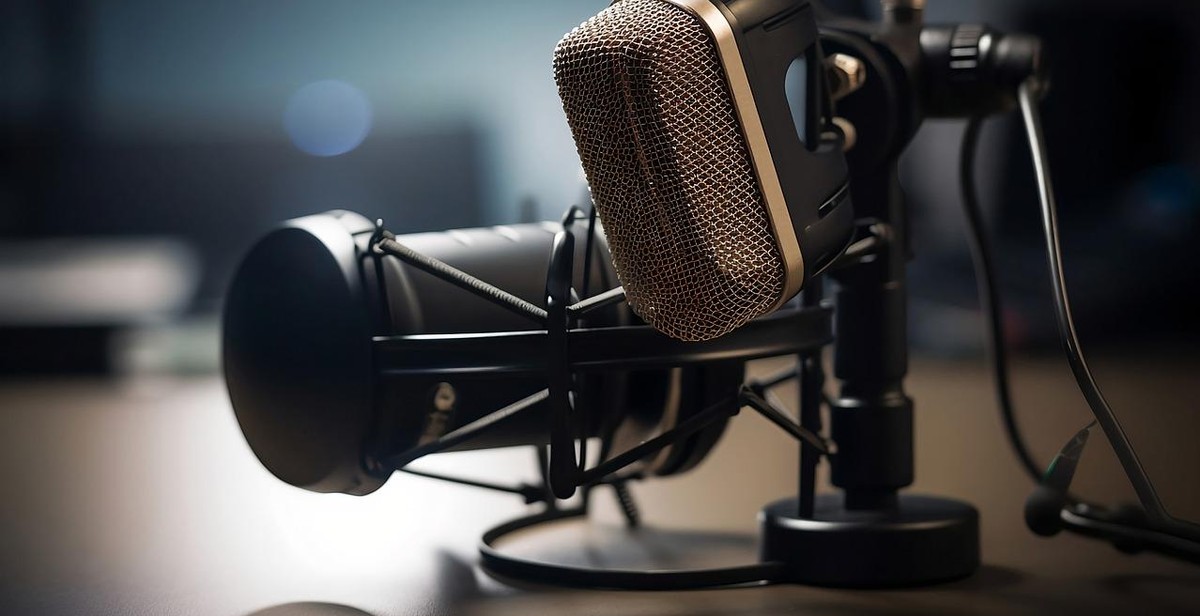How to Start a Podcast: Tips for Planning, Recording, and Promoting Your Show
Podcasting has become an increasingly popular way to share information, entertain, and connect with audiences. But if you’re new to podcasting, it can be overwhelming to know where to start. In this article, I’ll share my personal experience and tips for planning, recording, and promoting your podcast.
Planning Your Podcast
Before you start recording, it’s important to have a plan in place. This includes deciding on your podcast’s topic, format, and target audience. You should also choose a name and create cover art that represents your show.
Another important aspect of planning is creating a content calendar. This will help you stay organized and consistent with your podcast episodes. You should also consider your equipment and software needs, as well as your budget.
Recording Your Podcast
Once you have a plan in place, it’s time to start recording. This can be done from the comfort of your own home with minimal equipment. However, it’s important to ensure that your audio quality is clear and consistent.
During recording, it’s also important to stay on topic and engage with your audience. This will help keep your listeners interested and coming back for more.
Promoting Your Podcast
Once you’ve recorded your podcast, it’s time to promote it to your target audience. This can be done through social media, email marketing, and guest appearances on other podcasts.
You should also consider creating a website for your podcast, where listeners can find show notes, transcripts, and additional resources.
Conclusion
With these tips and a little bit of creativity, you can start your own successful podcast and connect with your audience in a meaningful way. So, grab your microphone and get recording!
Planning Your Podcast
Starting a podcast requires a lot of planning and preparation. Before you start recording your first episode, you need to identify your niche, develop your format, and choose your equipment.
Identify Your Niche
The first step in planning your podcast is to identify your niche. Your niche is the topic or subject matter of your podcast. Choosing a niche that you are passionate about is essential because it will keep you motivated and engaged in your podcast.
When choosing your niche, consider your target audience and what they are interested in. You can also research the market to see what topics are popular and what gaps there are in the market that you can fill.
Develop Your Format
Once you have identified your niche, you need to develop your format. Your format is the structure and style of your podcast. There are different podcast formats to choose from, such as interviews, solo shows, co-hosted shows, and panel discussions.
When developing your format, consider your niche and target audience. What format will best serve your niche and engage your audience? You can also experiment with different formats to see what works best for you and your audience.
Choose Your Equipment
Choosing the right equipment is essential for producing high-quality audio for your podcast. You don’t need to spend a lot of money on equipment, but you do need to invest in quality equipment that will produce clear and crisp audio.
The basic equipment you need for podcasting includes a microphone, headphones, and recording software. You can also invest in a mixer, a pop filter, and a soundproof room or a sound booth.
When choosing your equipment, consider your budget and your goals. You can start with basic equipment and upgrade as your podcast grows and becomes more successful.
Conclusion
Planning your podcast is an essential step in starting a successful podcast. Identifying your niche, developing your format, and choosing your equipment are key factors that will determine the success of your podcast. Take the time to plan and prepare before you start recording, and you will be on your way to creating a high-quality podcast that your audience will love.

Recording Your Podcast
Recording your podcast can be one of the most exciting aspects of starting a podcast. It’s the moment where you get to sit down and share your thoughts, ideas, and opinions with your audience. Here are some tips to help you make the most out of your recording sessions:
Recording Tips
Before you start recording, it’s important to make sure you have the right equipment. A good quality microphone is essential, as well as a quiet and comfortable space to record. You can record your podcast using a computer software like Audacity or GarageBand, or invest in a digital recorder like the Zoom H4N.
You should also consider the format of your podcast. Will it be a solo show or will you have guests? If you’re having guests, make sure to test your equipment and set up before the recording to avoid any technical difficulties.
Editing Your Podcast
Once you’ve finished recording, it’s time to edit your podcast. This is where you can make any necessary cuts, add transitions, and adjust the volume levels. You can use editing software like Audacity or Adobe Audition to do this.
When editing your podcast, make sure to listen to it all the way through to catch any mistakes or areas that need improvement. It’s also a good idea to have someone else listen to it for a fresh perspective.
Adding Music and Sound Effects
Adding music and sound effects can help bring your podcast to life. You can find royalty-free music and sound effects online, or create your own using software like GarageBand or Logic Pro.
When adding music and sound effects, make sure to keep them balanced with your voice. You don’t want them to overpower your message or distract from the content.
Overall, recording your podcast can be a fun and exciting experience. By following these tips, you can ensure that your podcast sounds professional and engaging for your audience.

Promoting Your Podcast
You’ve recorded and edited your podcast, and now it’s time to promote it. Here are some tips for getting your podcast in front of as many people as possible.
Creating Your Podcast Cover Art
Your podcast cover art is the first thing potential listeners will see, so it’s important to make it eye-catching and relevant to your show. Here are some tips:
- Use high-quality images and fonts
- Make sure the title of your podcast is prominent
- Include relevant images or graphics that represent your show
- Make sure the cover art is easy to read when it’s small (like on a phone screen)
Submitting Your Podcast to Directories
Before you can start promoting your podcast, you need to make sure it’s available on all the major podcast directories, like Apple Podcasts, Spotify, and Google Podcasts. Here’s how:
- Create an account on each directory
- Submit your podcast’s RSS feed
- Wait for approval (this can take a few days)
Once your podcast is available on these directories, it will be easier for people to find and listen to.
Marketing Your Podcast
Now that your podcast is available on all the major directories, it’s time to start promoting it. Here are some ways to get the word out:
| Social Media | Share your podcast on your social media accounts and ask your followers to help spread the word. |
| Email your friends, family, and colleagues to let them know about your podcast and ask them to subscribe. | |
| Guest Appearances | Appear as a guest on other podcasts to promote your own podcast and reach new audiences. |
| Advertising | Consider advertising your podcast on social media or other platforms to reach a wider audience. |
Remember, promoting your podcast is an ongoing process. Keep sharing new episodes and engaging with your listeners to keep them coming back for more.

Conclusion
Starting a podcast can be a fun and rewarding experience. With the right planning, recording, and promotion strategies, you can create a successful podcast that attracts a loyal audience. Here are some key takeaways to keep in mind:
Plan Your Podcast
- Choose a topic that you’re passionate about
- Create a format that works for your topic and audience
- Set a schedule for recording and publishing episodes
- Invest in quality equipment and software
Record Your Podcast
- Prepare for each episode by researching and organizing your content
- Practice speaking and editing your audio
- Engage with your guests and listeners to create a community
Promote Your Podcast
- Use social media and email marketing to reach a wider audience
- Collaborate with other podcasters and influencers in your niche
- Engage with your listeners and encourage them to leave reviews and ratings
Remember, creating a successful podcast takes time and effort. Don’t get discouraged if you don’t see immediate results. Keep improving your content and promoting your show, and you’ll eventually build a loyal following. Happy podcasting!
